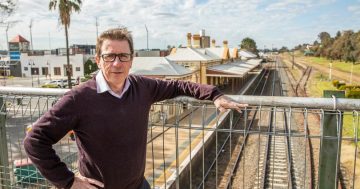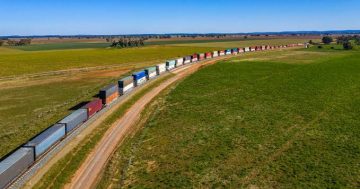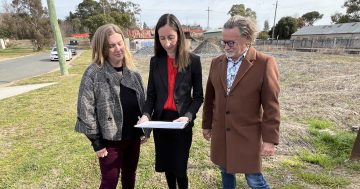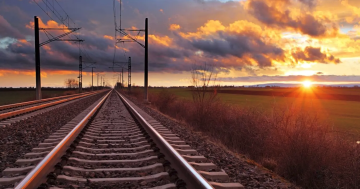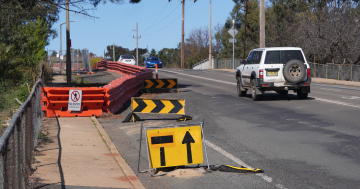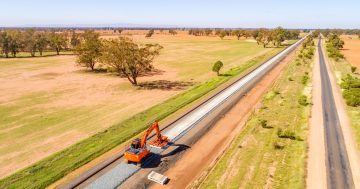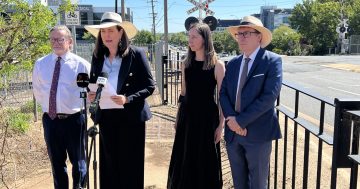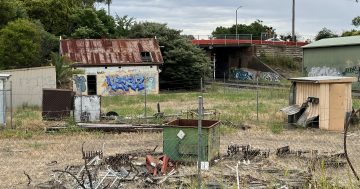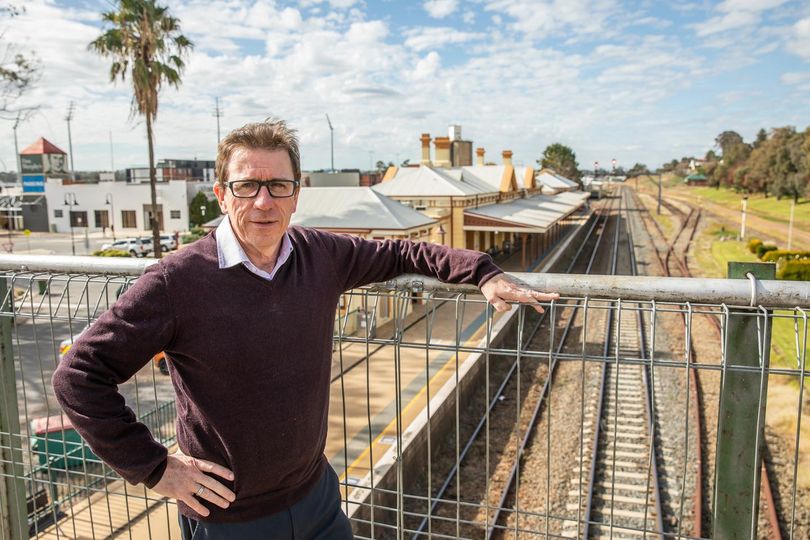
Dr Joe McGirr has been questioned about where he obtained figures on the number of trains that will pass through Wagga once Inland Rail is operational. Photo: Supplied.
Will a controversial Federal Government ”nation-building” rail project cause chaos in Wagga’s CBD?
Independent Wagga MP Joe McGirr has tabled a petition calling on the government to mitigate the impact of an increased number of freight trains set to pass through the town centre. However, the figures he has used have been questioned by the project planners.
Inland Rail is a 1600-kilometre freight rail-line project that will connect Melbourne and Brisbane via the Riverina. Due to begin this year, it is being constructed by the Federal Government-owned Australian Rail Track Corporation (ARTC). The project is aimed at helping companies send their produce to big cities and ports faster and more efficiently.
Dr McGirr and Wagga City Council have highlighted concerns about the impact the route will have on Wagga. In particular, there are fears that ambulance access to Wagga Base Hospital will be slowed at a rail intersection at Docker Street, causing serious safety risks.
The Wagga MP recently tabled a petition with more than 600 signatures to the NSW Government, highlighting concerns.
“The planned route cuts the city in half, which will cause significant traffic disruptions, impede access to key health facilities and emergency services, and create noise and vibration that will impact residents,” the petition states.
Dr McGirr said: “Many people in our community are understandably worried that when Inland Rail is operational, with more than 20 double-stacked freight trains rolling through the city every day, a divide will be created between north and south.
“But as the petitioners state, there will be a need for grade separation at the Bourke/Docker Street level crossing to ensure traffic can flow effectively, and I will be advocating strongly for this measure to be taken.”
Dr McGirr’s statistics about the number of trains that will travel through Wagga daily were challenged by an Inland Rail spokesperson, who questioned how he came up with the figures.
“The data we have published on our website states there will be 18 freight trains (single- and double-stacked) passing through by 2040,” an Inland Rail spokesperson said.
Dr McGirr responded by clarifying his previous comments.
“Despite earlier advice provided to me by Inland Rail of 20 or more daily train movements, plus a forecast of 20 per day in the Inland Rail Environmental Impact Statement, I am pleased with the confirmation that the number will peak at 18,” Dr McGirr stated.
“This will provide some reduction in the impact on Wagga, but the fact remains that a bypass will ultimately be needed, as will grade separation at the Bourke and Docker streets level crossing.”
Inland Rail said 12 trains currently passed through Wagga Wagga daily.
Federal Member for Riverina Michael McCormack said concerns about Wagga CBD disruptions by the project had been exaggerated.
“The extra wait time is suggested to sit around 1.6 seconds during peak hour on Docker Street, with the maximum being around 15 seconds,” Mr McCormack said.
“The ARTC had meetings where hundreds of people turned up, including 14 public consultation meetings, and no-one, including members of Wagga Council, now lobbying for the bypass showed up.”
The Albury to Illabo section of Inland Rail that passes through Wagga CBD is set to begin construction this year and be completed by 2027.







